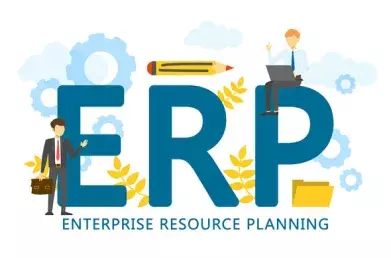Managing ERP Implementations in International Environments
Anyone involved in any significant ERP implementation projects recently will have noticed that there are increasingly international aspects to these – more than may have been the case not that many years ago.
There may be any number of different reasons – many organisations operate on an international basis – requiring that international requirements be considered and that resulting solutions be rolled out to different geographies.
Likewise, solution providers are becoming more international with centres of excellence in different countries.Even local project teams more often include individuals from different nationalities and cultures given the increased mobility across previously impervious international borders.
This can be further complicated when it is necessary to integrate different elements of complex solutions involving vendors from different countries. I recently managed a project which required integrating a range of systems which included: An ERP solution from a supplier based in the Czech Republic, an EPOS solution from a German provider (requiring integration to a UK bank for Credit Card processing), a Freight Forwarding solution from a South African partner and a Distribution / Logistics partner in the UK. This may be an extreme example (a couple of other smaller elements have been omitted for fear of being accused of exaggeration!), but it is real, and also an indication of the type of complexity that is becoming more common.
While all the normal disciplines required for proper governance still apply in these situations, there are a number of other considerations that should be taken into account when operating in these environments – some practical and some requiring what are commonly referred to as “soft” skills.
In terms of purely practical issues, different time zones can significantly reduce the window available for scheduling remote meetings / conference calls etc. The more geographically dispersed the participants, the greater the challenge. Similarly, when scheduling activities over the duration of a project, consider what are the different fixed holidays in the various geographies involved. It is surprising how quickly this can limit when certain activities can be scheduled.
Be aware of what the cultural differences of the various participants will bring to the party. And without stating the obvious, remember that you own 50% of any difference – and are 100% responsible for how you manage your share of this.Discard any assumptions based on stereotypes - in my experience, you may recognise some element of the stereotypes in the people you meet, however you will never see the individual people in the stereotypes.
Also – expect some cultural clashes (hopefully all minor!).Many countries have joint histories – not all of which has been mutually positive, and not all of which has been completely consigned to history.
That said, working in a culturally diverse situation can be very interesting and rewarding.
As in everything, overcoming these challenges confirms that Communication is King. However, this also comes with some potential banana skins for the unwary. Given that English is increasingly accepted as the “lingua franca” for international business, you will find the majority of those from other countries are increasingly proficient in English. However, it is essential, for those of us whose first language is English, to recognise the fact that this is a second language for many – who will most likely be still functioning (i.e. thinking!) in their original language while doing instantaneous translations to participate meaningfully in any conversation.
In conclusion, projects with international elements are increasingly common and the leading methodologies and textbooks in the field of project management do not address many of the resulting challenges in any meaningful way. Ignore these at your peril.
This blog and white paper was written by Gerry Savage, Principal Consultant, at Lumenia. For further information on Lumenia or specifically on Managing ERP Implementations in International Environments send an email to Gerry Savage.


